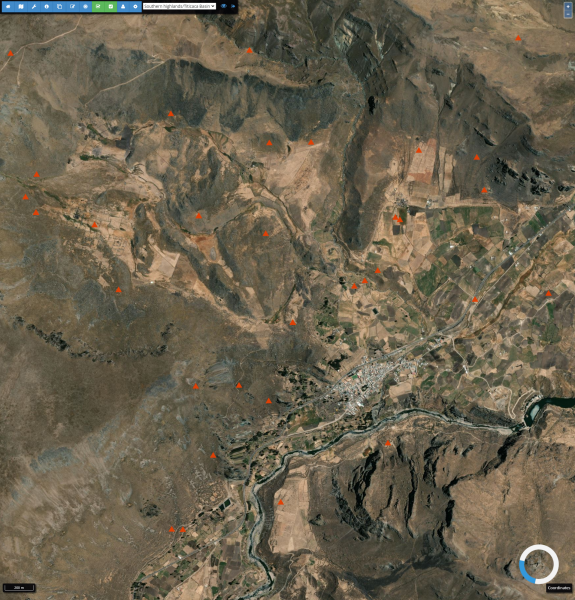
A $350,000 grant to develop next-generation archaeological mapping technology will let a Vanderbilt-led research team reveal information about vast settlement systems and human-modified landscapes in the Andes.

Steven Wernke, associate professor and chair of the Department of Anthropology, is the project director of the research initiative, which will result in the largest archaeological imagery survey in the Western Hemisphere. This three-year NEH Digital Advancement Grant will fund the development of Geospatial Platform for Andean Culture, History and Archaeology, or GeoPACHA 2.0.
Wernke is conducting the geospatial modeling and analysis with Assistant Professor of Computer Science and Electrical Engineering Yuankai Huo and his graduate student team, undergraduate anthropology students, postdoctoral fellow James Zimmer-Dauphinee, researchers at the Data Science Institute and a Brown University team led by Parker VanValkenburgh.
Wernke’s original GeoPACHA 1.0 was funded by previous NEH and American Council of Learned Societies grants, which laid the foundation for this next phase of AI-assisted survey. GeoPACHA has already identified about 40,000 archaeological loci in six survey zones throughout the central Andes using manual visual survey of satellite imagery. With the next phase of research, GeoPACHA 2.0 will integrate AI to zero in on areas with probable archaeological features, enabling dramatic upscaling of survey coverage to encompass all of the central Andes.

“Comprehending the interconnectedness of past human societies across such expansive regions demands cutting-edge image processing and computer vision technologies. Collaborating across multiple disciplines has been a thrilling and gratifying experience,” Huo said.
Wernke and Huo’s work was bolstered by a Scaling Success Grant from Vanderbilt. “Being awarded this NEH grant underscores how Scaling Success Grants empower faculty to amplify the impact of their research, enabling them to secure larger and more competitive awards from federal, foundation and industry sponsors,” Huo said.